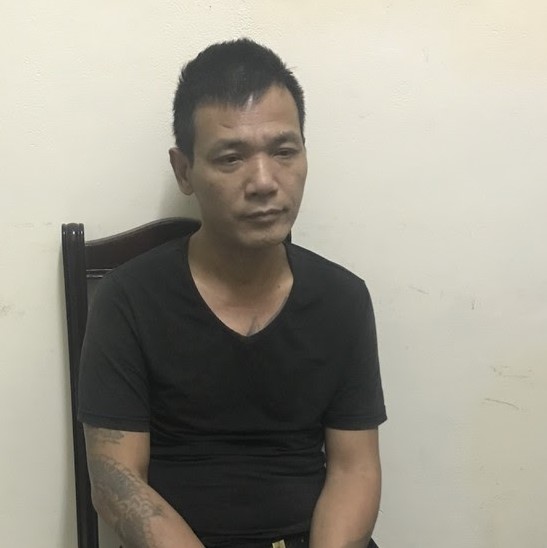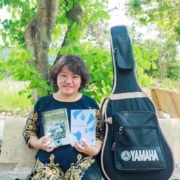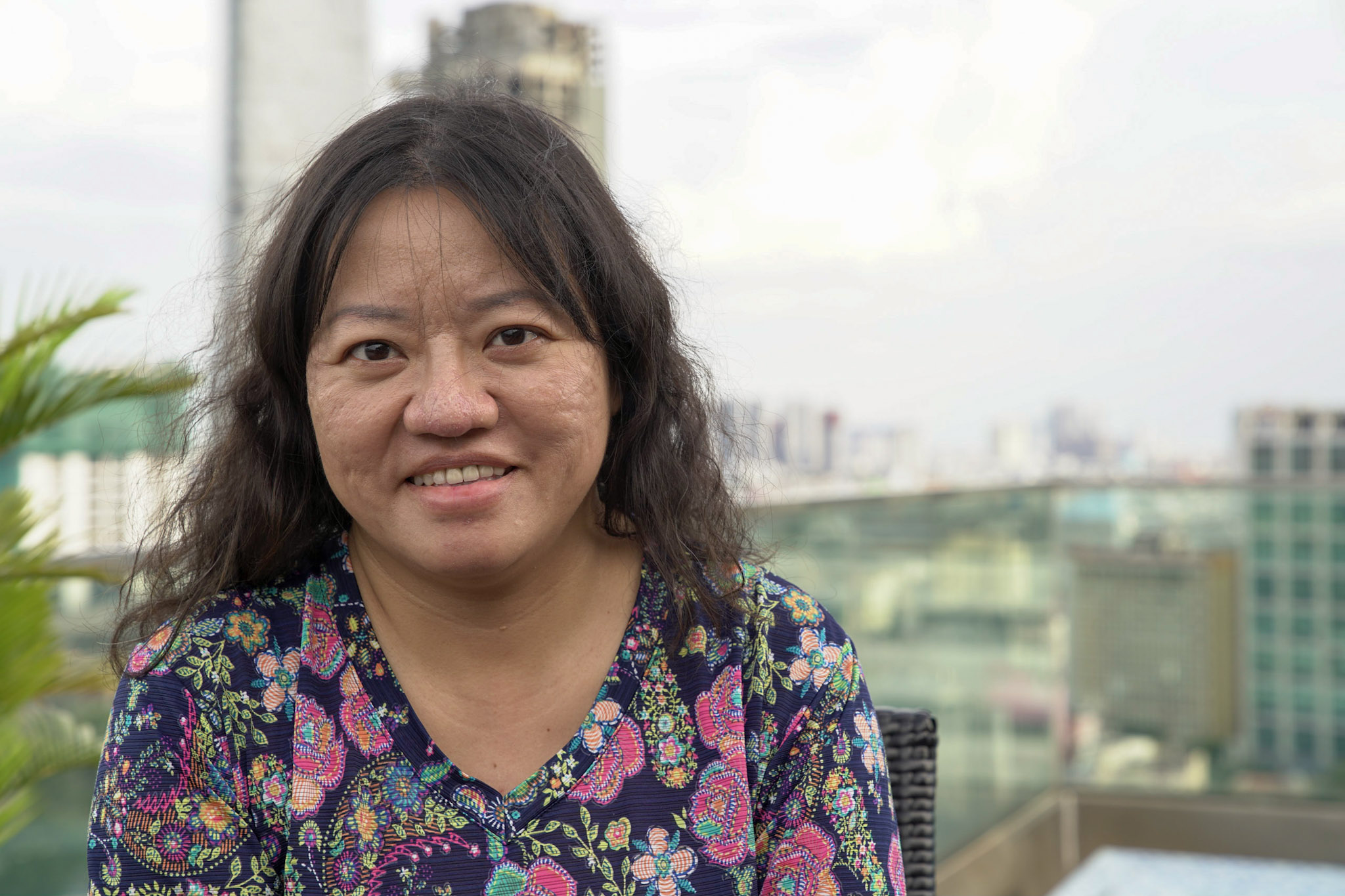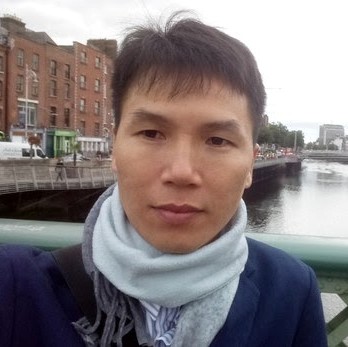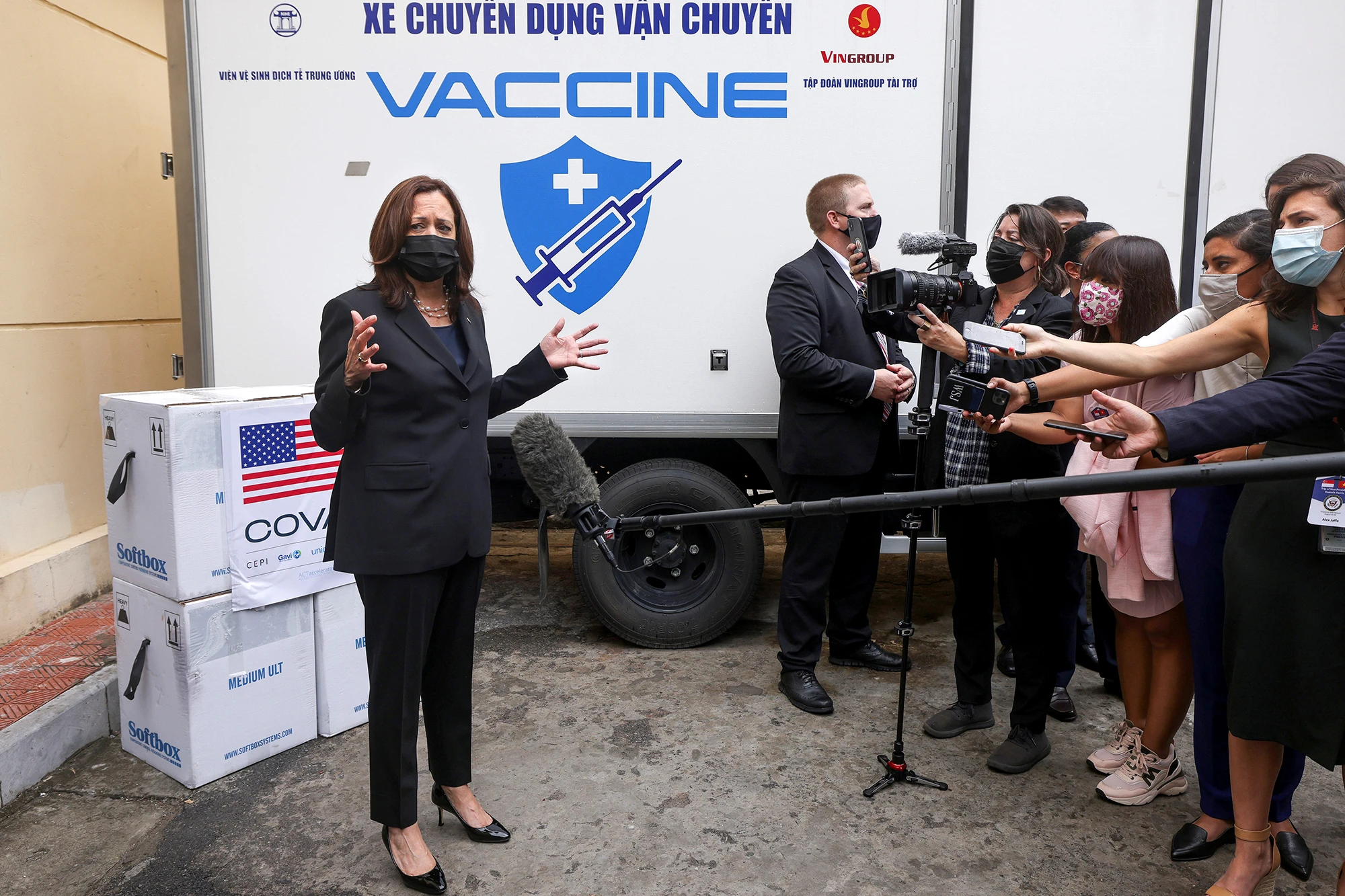The Picture of Freedom of Expression in Vietnam; Could It Be Any Darker?
Vietnam continues to systematically and actively suppress the freedom of expression of its citizens, despite committing to uphold this right in its Constitution and several international human rights treaties. To fight for the human rights that Vietnamese citizens deserve to have, they must pay for this with their imprisonment and even their blood.
As of December 2, 2021, there have been 30 cases of human rights defenders and activists arrested and imprisoned within the year alone, just because of their peaceful dissent. This number brings the number of abuses on file to 111 arrests of activists and 227 other instances of persecution since 2019, according to our records.
In mid-October 2021, the Vietnamese authorities had announced plans to bring land rights activist Trinh Ba Phuong and his co-defendant Nguyen Thi Tam to trial on November 3. That was followed by the trial of imprisoned journalist Pham Doan Trang on November 4. All of them are persecuted because of their peaceful activism. However, the trials were postponed at the last minute due to some of the prosecutors having to “self-quarantine due to coming into contact with Covid-positive individuals.”
Shortly after that, on October 20, Vietnam released its Universal Periodic Report (UPR) third cycle mid-term report draft for public comments and contributions. In the draft, the State asserted that it “has promulgated and amended various legal documents in this domain, as well as implemented many specific measures to ensure the legitimate right and freedom of expression of the people.” However, the implementation of the core recommendations on freedom of expression has been unsatisfactory, as witnessed by The 88 Project’s own mid-term report.
The UPR is a unique mechanism of the United Nations Human Rights Council, which involves a periodic review of the human rights records of all 193 UN member states every five years. Mid-term reports can be filed on a voluntary basis in relation to the implementation of the recommendations made during the previous cycle.
In its report, Vietnam illustrated its “remarkable achievements in enhancing the people’s widespread access to information,” but it did not explain how the State has implemented the recommendations on freedom of expression, media independence, and protection of journalists. The report merely provided a list of records showing that Vietnam “is ranked 12th worldwide in terms of number of Internet users and 6th out of 35 countries/territories in Asia.” Ironically, those figures could never represent “specific measures” and “remarkable achievements” to respect, protect, and fulfill the right to freedom of expression upheld by the State.
For instance, prominent journalist Pham Doan Trang was subjected to prolonged surveillance and harassment by public security before her arrest on October 6, 2020. Similar to many other political prisoners in Vietnam, she was denied legal representation and faced prolonged incommunicado detention and was only allowed to see her lawyer after more than a year after her arrest. Trang is accused of conducting “anti-state propaganda.” As she is facing an impending trial, she is suffering from low blood pressure and ovarian cysts. Although Trang is reported to be mentally strong, she has lost 22 lbs while living in harsh prison conditions.
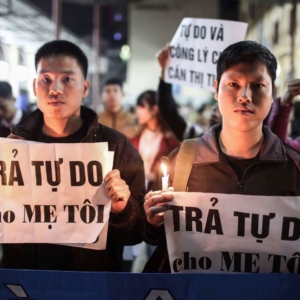
Can Thi Theu’s two sons, Trinh Ba Phuong (R) and Trinh Ba Tu, holding the signs: “Freedom for my Mother” at a praying mass for victims of injustice. Source: Facebook Trinh Ba Phuong, All three family members are currently imprisoned.
Likewise, land rights activist Trinh Ba Phuong and his co-defendant Nguyen Thi Tam are waiting for trial on charges of “conducting propaganda against the state,” under Article 117 of the 2015 Criminal Code, which could result in 10 to 20 years of imprisonment. Both of the activists suffer from prolonged incommunicado detention. In Phuong’s case, he also has faced denial of legal representation, denial of family visits, a punitive prison transfer, and infliction of physical and psychological pain. The violations include investigators attempting to threaten Phuong by telling him that if he did not plead guilty, they would arrest his wife as well.
These incidents of human rights violations are among the evidence proving that Vietnam has failed to promote freedom of speech, which was established under the International Covenant on Civil and Political Rights and the Constitution of Vietnam. What is the point of lauding oneself repeatedly for having “nearly 70 million Internet Users in Viet Nam (more than 70% of the population),” when citizens dare not speak online or offline, and are subjected to surveillance, intimidation, arbitrary detention, imprisonment, legal harassment, sham trials, and severe mistreatment and torture?
The picture of human rights in general and the right to freedom of expression in particular in Vietnam gets darker and darker. In order to improve it, Vietnam should firstly eliminate its well-documented practice of intimidation and harassment by law enforcement altogether. Secondly, it must comply with international human rights law by ensuring due process for defendants, especially the right to counsel, among other legitimate rights. Thirdly, the State should abolish provisions in the 2015 Criminal Code that give it unrestricted power to suppress expressions of dissent. And most importantly, Vietnam should drop the charges against activists, human rights defenders, and political prisoners and immediately and unconditionally release them, without conditions such as exiles.
In the course of writing this article, new trial dates were scheduled, on December 14 for Pham Doan Trang, and on December 15 for Trinh Ba Phuong and Nguyen Thi Tam. A day after, on December 16, the trial for another well-known activist, Do Nam Trung, will take place. These much anticipated trials are another test of the Vietnamese government’s commitment to improve its human rights record. Freeing Trang, Tam, Phuong, and Trung would be a good first step.
© 2021 The 88 Project

